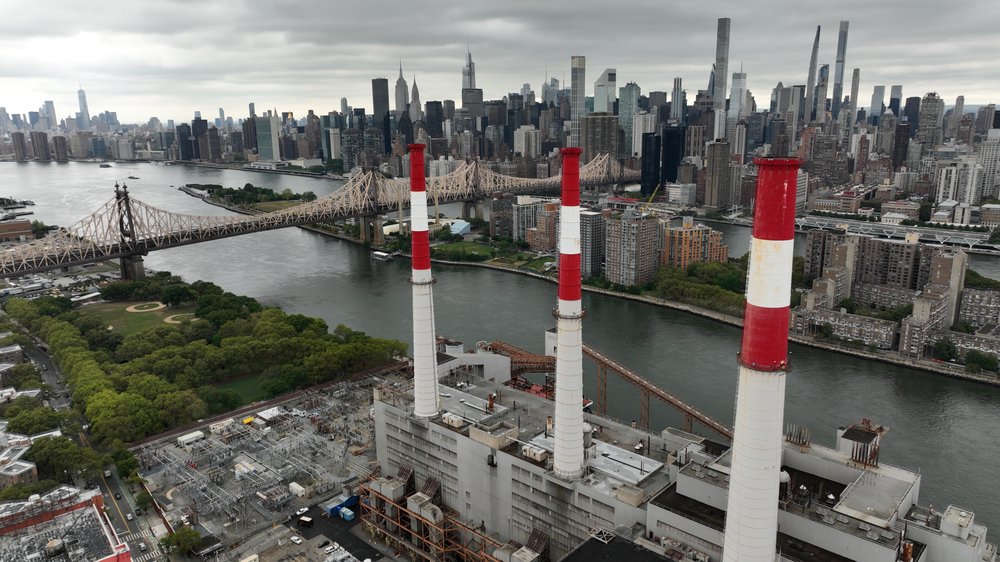New Yorkers are getting burned by heating costs as gas bills soar, report says
Jan. 30, 2025, 1:10 p.m.
The average Con Edison customer is paying almost $50 more per month for gas heating compared to 2022.

New Yorkers are paying more than ever to heat their homes with gas – and prices will continue to rise.
A new analysis from the Alliance for a Green Economy, or AGREE, found that New York state has allowed every major gas utility to raise prices since 2022 and most customers can expect more rate hikes soon. The review was based on publicly available data from the Public Service Commission, the government agency that approves energy rate increases. Lawmakers and advocates are pushing the New York Heat Act as a solution for rising costs that will also expedite the retirement of the gas system.
”All across New York, how much more people are paying for gas heating was the biggest shock for us – just to see it all in one place and to see how it's all adding up,” said AGREE's Executive Director Jessica Azulay. “ We cannot afford to keep seeing these bills go up the way they are. We cannot continue to stay on this trajectory.”
Advocates analyzed the increases by taking the average bill from 2022 and then adding each state-approved rate hike. The report doesn't account for the arctic temperatures New York City experienced this month.
AGREE’s research showed that the average Con Edison customer is paying almost $50 more per month for gas heating compared to 2022. Another 1.4% rate hike will take effect this month. Average heating costs have increased to an average of $253.
“Con Edison rates are determined in a transparent process, open to all, and overseen by the New York State Public Service Commission,” wrote Con Edison spokesperson Jamie McShane in an email. “In that process a number of factors are balanced, including the level of rates, the cost of necessary investments in the safety and reliability of the Con Edison gas system, and the clean energy transition.”
McShane noted that the Public Service Commission approved recent rate hikes to advance clean energy goals. The costs were also deemed necessary to cover increased operation costs. The PSC did not immediately respond to an email.
National Grid customers face similar climbing costs. Their monthly bills have increased by about $40 on average since 2023, and another rate hike coming next year could add about $20 more, according to the AGREE report. The average gas heating bill has gone up from an average of $110 in 2023 to a projected cost of $172 in 2026, according to the new analysis.
Rising energy costs have big implications for many New Yorkers’ wallets. A March 2024 report by the climate think tank Switchbox found that 1 in 4 customers in New York can’t afford to pay their utility bills. In Assemblymember Yudelka Tapia’s Bronx district, the average household income is $24,900 – well below the poverty line. She said her constituents can’t afford to pay $250 per month for gas, and she said many of them are behind $2,500 or more.
”This is one of the biggest issues that we have in our office,” Tapia said. “All the residents in my district and constituents come just asking and begging how they're going to pay.”
She said the cost increases are not only burdensome for her neighbors, but also are not in line with state climate laws that call for 70% of New York's power to come from renewable sources by the end of the decade. The law also calls for the state to reach zero greenhouse gas emissions by 2050. In New York City, more than two-thirds of greenhouse gas emissions come from buildings that rely on fossil fuels such as natural gas for cooking and heating.
Azulay said the rate hikes perpetuate an energy system that state law requires to be phased out.
“ To have that be the law, but to have utilities continue to invest hundreds of millions and, in some cases, billions of dollars in gas infrastructure is really outrageous,” Azulay said.
Advocates and lawmakers point to the NY Heat Act as a possible solution for rising utility costs and climate goals. The legislation, introduced more than two years ago, caps gas and electricity at 6% of a household’s annual income. The bill also eliminates subsidies for new gas hookups and removes the utility companies’ obligation to provide natural gas to everyone. According to the Switchbox report, redirecting these subsidies to electrification can save ratepayers money.
“We really need our scarce resources to go toward achieving the benefits of climate action, which not only include a stable climate, but also include energy affordability and cleaner air and healthier homes,” Azulay said.
Trifecta of NYC utility hikes could bring double-digit increases: What to know